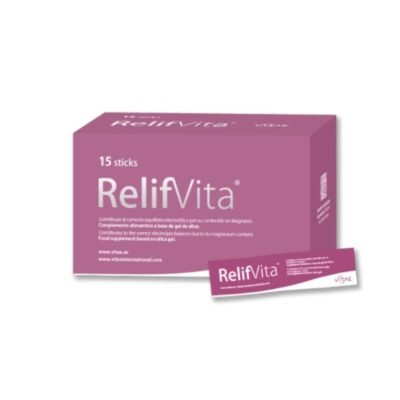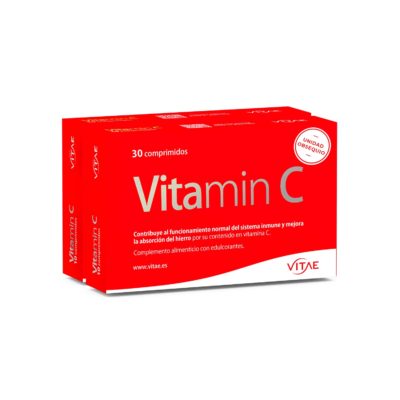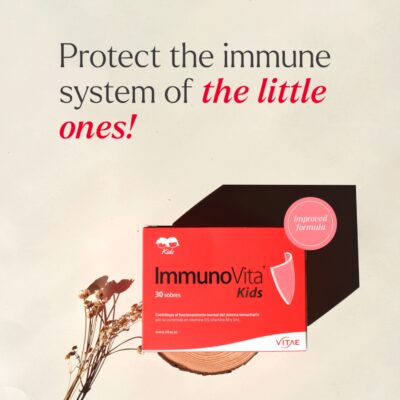We have spoken with Dr. Farida Kafikova, pediatrician specializing in gastro-integrative medicine, both children and adults, about the importance of the immune system of children and how to keep it in good shape.
We had a pleasant conversation in which, among other things, it became clear to me how important it is to take care of our intestines if we want to enjoy good physical and mental health (if yes, you have read correctly). Maintaining a good level of bacterial flora we make sure to cover many fronts, because, we must not forget that the intestine is our first defense organ.
First, a basic question. What are the differences between the immune system of children and that of adults?
The most obvious difference is that children’s immune system has a faster response. That means that it has a higher reactivity, either in the process of contraction or that of the solution, which is a real benefit. Nothing like the adults. It should be noted that children who have received breastfeeding have a higher immune response than those who have not.
Why do children become sick?
There are many factors that influence this process. 30-50% has to do with genetic predisposition. A 50-70 & with epigenetics, that is, with everything that includes our environment and pollution. It also includes the life of the mother before becoming pregnant, from birth to the moment she became pregnant. Family history plays also a role. You have to look back, this is really important.
It is good for children to get sick?
If by getting sick we understand that they are in contact with other microorganisms, then it is good that they get sick. I like to differentiate between, functional and pathological catarrhs. The functional ones occur when one microorganism meets another and there is an exchange of microflora, as happens when the children go to the nursery. This is a natural and very necessary form of immunization. Children who are not usually in contact with other children until a later age (8-9 years) are more at risk of generating serious illnesses than a child who starts attending day care at a very young age.
If we are talking about something that can be pathological then we should go to the doctor, but as long as it does not go beyond a bacterial infection, we should not worry and rather, take it as a normal process. I always talk about finding balance in everything. Before parents took a long time to go to the pediatrician and now we are going too early. Neither one extreme nor the other.
Much has been said about the importance of breastfeeding. Is it really so necessary? What are its benefits?
Today we find opinions of all kinds, but I, personally, am 100% in favor of breastfeeding. Of course, always avoiding the extremes and obsessions. There are children, for example, who want breast milk until they are 5 years old, and that is not healthy, neither for the mother nor for the child. You have to observe and try to follow the course of nature which means that, when the child starts to get their teeth, surely means they need to start consuming other foods. Pediatric dentists, know well that when this happens the child has to start chewing food, there must be an evolution so that the body begins to absorb new nutrients that will be beneficial for the intestinal microbiota. Otherwise this process would happen later.
So, I am in favor of making the most of the benefits of breast milk during the adequate period.
Does the fact of taking or not taking breast milk have repercussions in our adult stage?
Yes of course. It has short-term and long-term consequences. In the short term we are stimulating and building the immune system of children through the microorganisms that it contains and that benefit its intestinal flora. We are helping the child to defend against the pathogens of this world.
In the long term we are making an investment so that after a few years you can enjoy a healthy intestine, which is the first immunological organ. Each time we are becoming more aware of the importance of having a proper intestinal microbiota.
And in all this process, what role does the mother play?
Receiving proper breastfeeding is very important, but it is also important that it comes from a healthy breast, that is, that does not smoke or take drugs, eat healthy, drink water, do not abuse medications … Many mothers enter the office after they have smoked, which horrifies me, because, among other things, a single cigarette neutralizes all the positive effects of breast milk.
And for those moms who do not want / can breastfeed?
In the first place, it is important not to become overwhelmed and to be clear that you are not a bad mother because you cannot breastfeed. Second, know that there are many alternatives that approach almost 100% breast milk. Recently, a well-known brand has released a formula that offers a milk almost identical to that of the mother.
In the development of the child’s immune system, what role does the intestine play?
The intestine is our first defense organ. There is a direct relationship between intestinal flora and the immune system, and there are more and more studies that confirm it. When our intestinal flora enters into deficit our immune system weakens and therefore begins to let pathogens pass. If we maintain our intestinal microbiota in shape we will have a more reinforced immune system. Keep in mind that 70% of serotonin, the hormone of happiness, is secreted in the intestine, not in the brain. That is to say, most things come from ” down there ” and not from the brain, as it is believed.
How can we strengthen the intestinal flora of children?
With a preventive therapy based on the use of probiotics. For example, we can start giving them probiotics when they start school and finish the treatment, approximately, in February or March depending on the duration of the cold season. Of course, its use will be almost essential in cases of infectious gastroenteritis, viral or bacterial, with the taking of antibiotics to prevent diarrhea associated with this therapy etc.
Last but not least, keep in mind that many medicines damage deeply the intestinal flora, so we should try not to abuse them.










